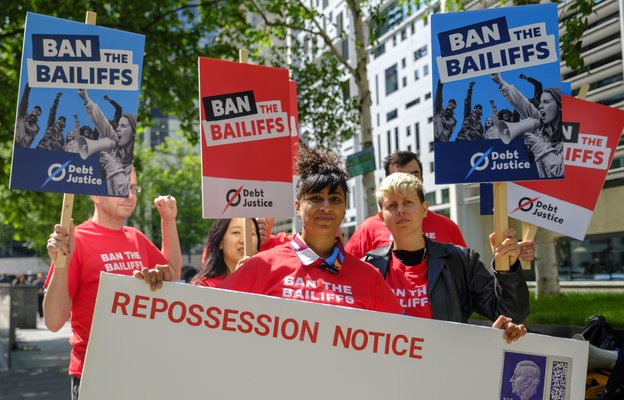Londoners in poverty often pay more for essential goods and services than those who are better off.
This is known as the ‘poverty premium’. It applies to things like the cost of household utilities, borrowing money, banking, and insurance. For example, the extra cost of fuel through using a pre-payment meter.
We believe low-income Londoners should not pay more for essential goods and services.
We want to fund work that leads to a substantial reduction in the amount of extra money paid by Londoners because of the poverty premium.
What we'll fund
We will fund initiatives, research and campaigns that have the potential to have impact at scale across the city.
This covers work that:
- Ends business practices that charge low-income customers more than those who are better off and supports alternative business models to grow.
- Exposes the unfairness of the poverty premium and the impact on people in poverty, with a particular focus on the disproportionate impact on different types of households.
- Supports a fair energy transition for low-income households, particularly around household gas and electricity. This may include practical initiatives such as helping the growth of community energy schemes or expanding the use of subsidies or social tariffs.
- Offers solutions to the poverty premium designed and driven by people’s experience of poverty, through an intersectional lens.
We particularly want to fund work with a focus on:
- solutions that have been informed by those most impacted by the poverty premium.
- helping us gain a better understanding of how different groups – for example, single-parent households and Disabled people – are impacted by the poverty premium.
- a just transition, promoting equitable energy access, financial services and social tariffs.
What we won't fund
Under our poverty premium priority, we’re focused on funding projects that have the potential to have an impact at scale across London. We want to fund work that engages with businesses and regulators to bring change for low-income households.
This means we will not fund:
- Work that is very localised, such as borough-based debt advice.
- Work that supports people only on an individual level, such as projects which help individuals find alternative ways of managing bills.
- Service delivery projects that respond to the needs of those impacted by the poverty premium, such as food banks.
Examples of work we're funding
-

Debt Justice
Campaigning and community organising to build the capacity of people with lived experience of household debt to campaign for policy change.
-

Fair By Design
Campaigning to end the extra costs of being poor across essential services, such as energy and insurance.
-

Finance Innovation Lab
Campaigning for a Fair Banking Act to tackle financial exclusion.